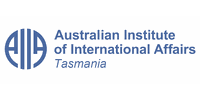Event Details
As Australia adapts to the increasingly uncomfortable possibility of being a 'front line state' in the Indo-Pacific, it needs to harness all tools of statecraft to help shape its international environment. Motivated by fear of Chinese assertiveness in the Pacific, and the accompanying contest of narratives, government has partially restored funding of the ABC's international broadcasting services.
This follows a wasteful pattern of inconsistency over decades in which governments and, sometimes, ABC management eroded the utility of international broadcasting in projecting the so-called third face of power: the capacity to shape, influence or determine other people's beliefs and desires. And to do so in a manner that took account both of state interests and the espoused values of social democracy.
Writing in the foreword to Geoff Heriot's book on international broadcasting as 'discursive power', Professor Geoffrey Wiseman** of dePaul University in Chicago, describes it as a sophisticated political history that re-shapes understanding of the 'soft' and 'hard' power dichotomy.
'In the current political climate', Wiseman writes, 'this book should be read closely by the supporters of the ABC as a manual on self-reflection and self-criticism. Equally, the ABC's critics could do well to read the book for a master class in constructive, historically grounded, evidence-based analysis of an underappreciated national soft-power asset.'
** Tasmanian-raised and a UTas alumnus, Geoffrey Wiseman is a former Australian diplomat and, currently, Professor and Inaugural Endowed Chair at the Grace School of Applied Diplomacy.
Harvard Room 1, University of Tasmania
Speakers

Geoff Heriot
Read Bio
Community
Connect with 26 people attending this event
 RMFMIMIFHPTW
RMFMIMIFHPTW